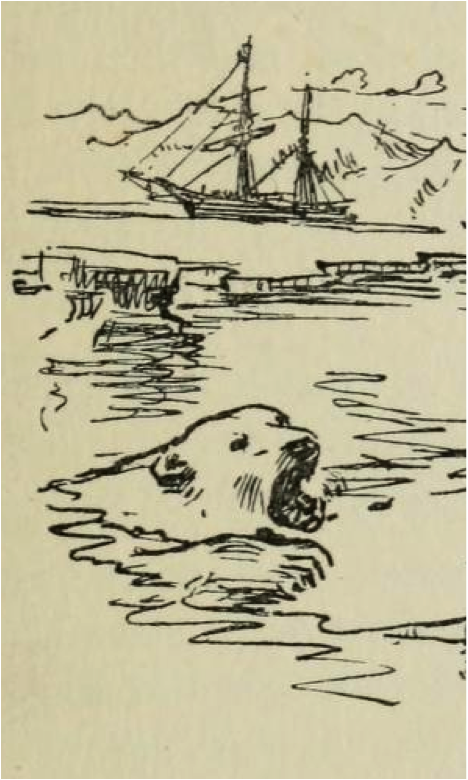the speculation on the bear & the whale, of which I dare say you have heard enough, simply made me laugh
(William Henry Harvey to Charles Darwin, 24 August 1860)
Darwin came to regard 'bear' as a 'word of ill-omen'. In the first edition of Origin he told the story of a black bear seen swimming for hours with its mouth wide open scooping insects from the water 'like a whale'. He went on to imagine that natural selection might produce increasingly aquatic bears 'with larger and larger mouths' until a creature 'as monstrous as a whale' emerged. His meaning was widely misunderstood, and he ended up regretting ever including it.
As he wrote to one reviewer: I by no means believe that the mouth of the Bear (how often that abominable animal has been made to worry me!!) might be increased by use; I referred here exclusively to the "natural selection" of bigger & bigger mouths because advantageous, in this foolish & imaginary illustration.- So if you read my pages on the Bat, you will see that I never dreamed of Galeopithecus gaining its membrane, or the seal its flipper, by use, but by natural selection.
Charles Lyell suggested omitting the whole anecdote from the second edition, but although Darwin cut the speculation about natural selection, he left in the description of the swimming bear, modified to read 'almost like a whale'. This half-way house may have been intended to appease Richard Owen who, to Darwin's exasperation, seemed at once to both loathe and like the passage. Darwin, swearing Lyell to secrecy, described asking Owen what he thought were the weaknesses of the book: 'Under garb of great civility, he was inclined to be most bitter & sneering against me. . . . I thanked him him for Bear & Whale criticism, & said I had struck it out.- "Oh have you, well I was more struck with this than any other passage; you little know of the remarkable & essential relationship between bears & whales". I am to send him the reference, & by Jove I believe he thinks a sort of Bear was the grandpapa of Whales!'.
Even modified, laid Darwin open to endless ridicule. 'The Bear case has been well laughed at,' he wrote to one correspondent, '& disingenuously distorted by some into my saying that a bear could be converted into a whale'. He thanked the Scottish explorer and travel writer, James Lamont, for being 'so heroically bold' as to defend the bear illustration: 'It is laughable' he continued 'how often I have been attacked and misrepresented about this Bear- I am much pleased with your remarks and thank you cordially, for coming to the rescue.'



